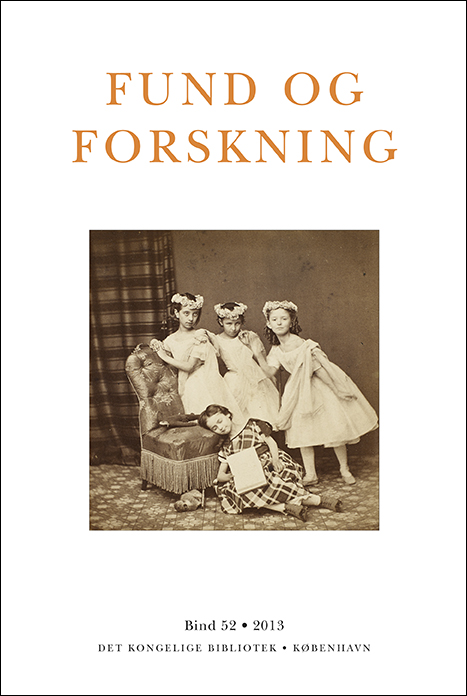Skriftsprogskompetence og skriftsprogsvalg hos to kommandanter på Kronborg i 2. halvdel af 1600-tallet
DOI:
https://doi.org/10.7146/fof.v52i0.41294Abstract
It is a rule of thumb that the army’s command language was German until 1773 andafter that Danish. But along with the language of the army, the army’s administration
also had a written language, and that is the subject of this brief empirical study. The
study will discuss the written language skills and the choice of written language by two
commandants of the same age at Kronborg, who were otherwise very different people,
each holding the position of commandant at the fortress for a number of years in the
second half of 17th century, in a selection of letters from them to the king and the
central administration. The letters are often about the construction work, which took
place at Kronborg at the time. The following questions are asked: Which language was
used when writing to whom? And what language did they allow to be written to whom,
when they used professional writers? In what situations did they use professional writers?
Was the choice of language determined by the recipient? The first is the Danish
nobleman Eiller Holck (1627–1696). The letters examined are from 1660–1664. Eiller
Holck, who was quite well-educated, was skilled at writing in both Danish and German,
but mostly used a writer, and when writing himself, he seldomly wrote more than a
short text near his signature. When he himself wrote to the king, he wrote Danish,
but when writing to the king using a writer, the writer used German. This was also the
case when writing to the Danish/Norwegian nobleman Jørgen Bielke. This is perhaps
linked with the language skills of the writer that was available. Holck took into account
the fact that his superior, Danish Field Marshall Hans Schack, preferred German. Both
Hans Schack and Eiller Holck used translations in communications with their troops.
The second is Jacob Geueke, son of a commoner from Burg on the German island of
Femern (1617–1699). The letters examined are from 1688–1692. He used German language writers, only wrote amendments on the letters himself and only in German
and was not satisfied with his own standard of writing. Perhaps he understood Danish.
It is of vital importance that many of the recipients of the letters in the central administration
were from Holsten. Perhaps the delivered correspondence would have been
in Danish to a greater extent had Jørgen Bielke been more involved in the administration?
Downloads
Published
2016-12-19
How to Cite
Christensen, B. (2016). Skriftsprogskompetence og skriftsprogsvalg hos to kommandanter på Kronborg i 2. halvdel af 1600-tallet. Fund Og Forskning, 52, 81. https://doi.org/10.7146/fof.v52i0.41294
Issue
Section
Articles


